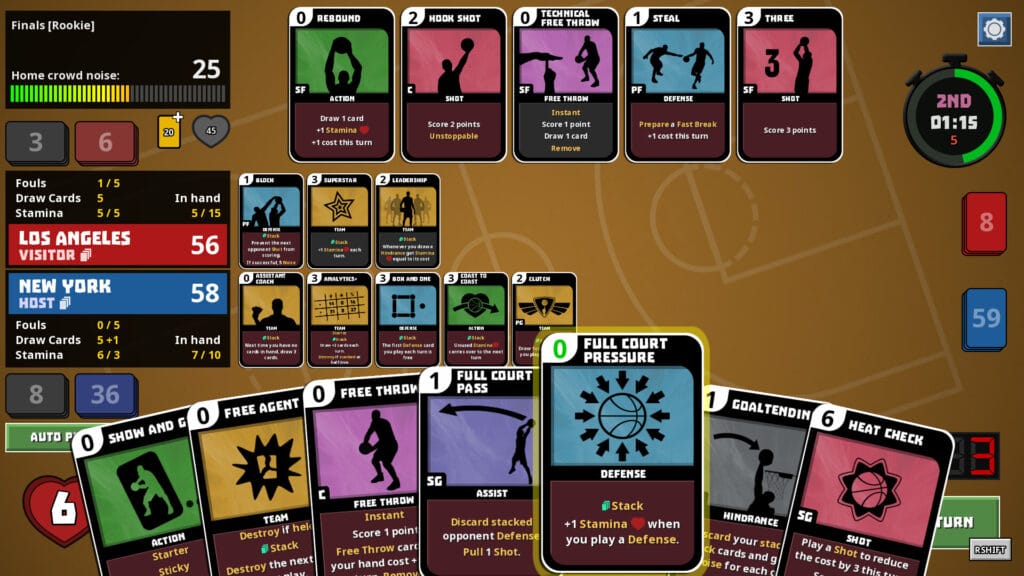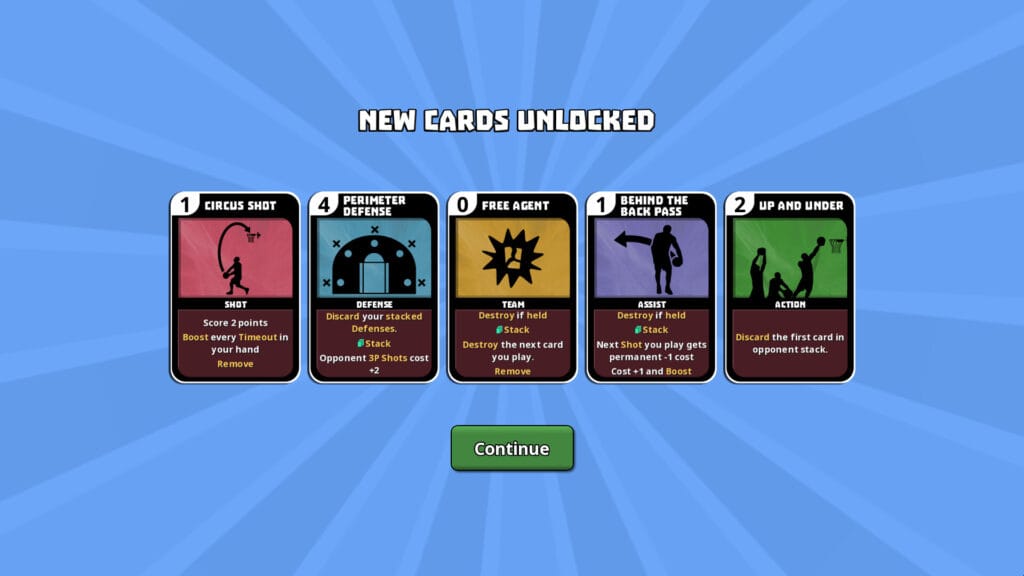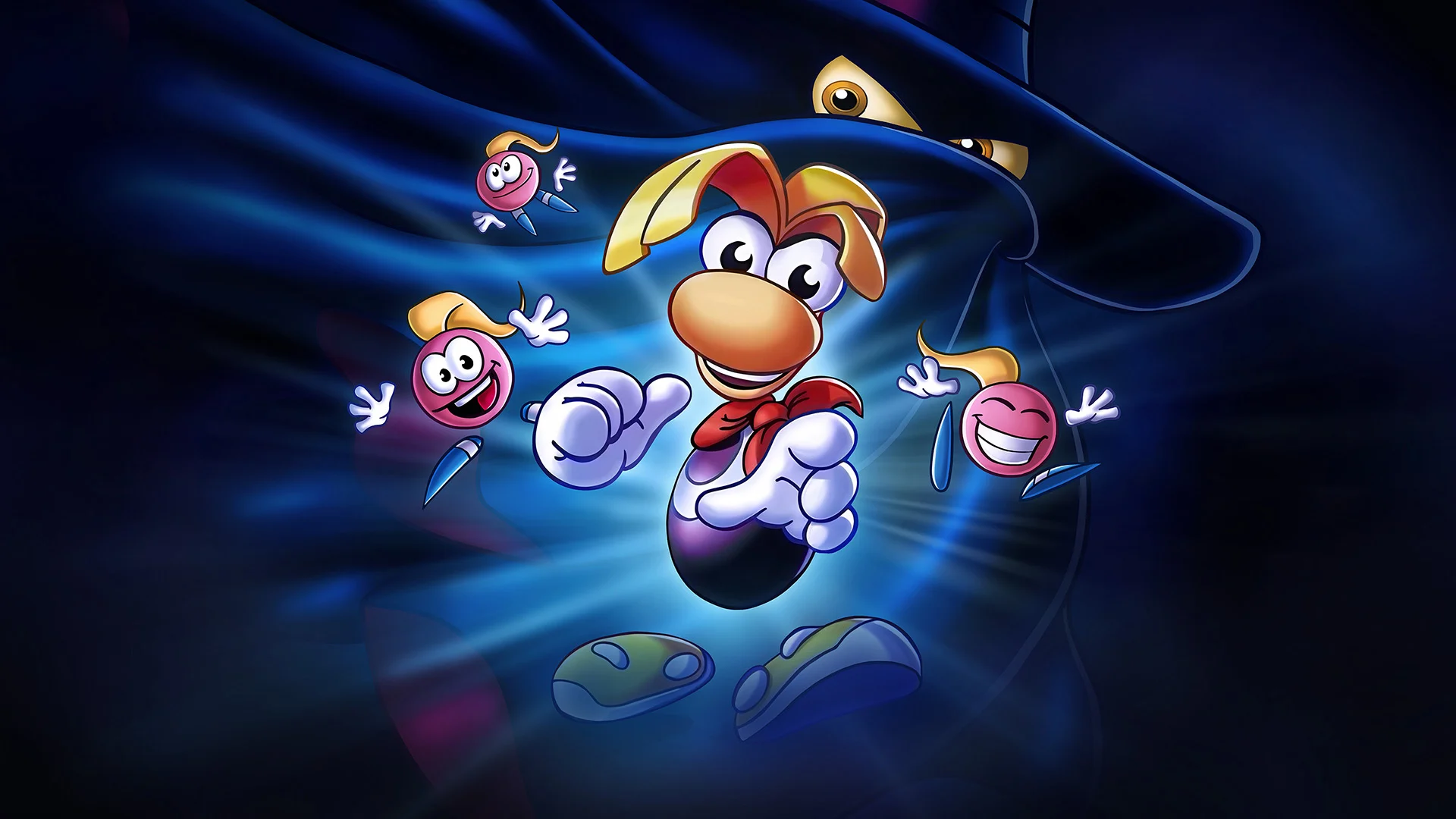Sold as a Balatro-like, there’s much more to Clutchtime: Basketball Deckbuilder than being a mere “anything”-like. If I had to draw comparisons in order to describe what this game is about, I would say it feels like Magic The Gathering, but with basketball put in place of all the fantasy stuff. It’s unfair to call it a mere sports game, though, as it feels like much more than that, thanks to its many layers and styles of play. To sum up: I REALLY like what this game has going for it.
Como g in from solo Serbian game developer Milan Babuškov, aka Bigosaur, and played as a match-by-match basketball simulator but in card game format, Clutchtime is deceptively simple looking in from the outside. You start every game by choosing from three buff cards that you can use right away as you begin, and from there, it’s a turn-based affair between your team and the opponents, with actual plays and tactics you’d see in bonafide real-life basketball. The clock moves as each side takes its turn by managing their stamina, which is basically mana, and spending it either on defensive or offensive plays.
Now, if you’ve had any experience playing deckbuilding RPGs, you’re probably thinking why you’d bother with defense when the objective is to win a game, so your team is better off scoring, right? Well, that would be true if Clutchtime only dealt in absolutes, which thankfully isn’t the case. By absolutes, I mean having no obstacles in your or the opponent’s way of getting shots off, and that’s where investing on defense comes into play. It’s how the game deals with that that makes it so smart.

It would’ve been way too simple just having you get a sure fire block by foregoing your attacks, but instead, you can basically get to do both depending on the draw, and even if that doesn’t flow the way you want, the progression is so fast that you quickly get another chance. And if things really don’t go your way, it all goes by in a matter of minutes, making it easy to just try again. With the way the game works when dealing cards, each attempt develops differently which makes repeat tries less of a drag than they would be otherwise.
Clutchtime can be played as a more traditional roguelike deckbuilder, where a loss can spell your doom, or like an actual sports sim, where winning or losing are stepping stones on your road to stardom. These are entirely customizable by having you pick from a region of the world and putting together the roster of teams you’ll be playing as and against.

As the competition progresses, random events play out that allow you to change your overall deck, such as trade opportunities, where you can get new players and benefit from their unique set of skills, or even upgrade the ones that you already have. Your roster can get injured, meaning you might get a chance to get rid of cards that don’t favor your play style, too, so there’s never a sure path forward, making each run feel different, giving the game much needed legs without having to resort to the flavor of randomness that feels anything but.
Clutchtime: Basketball Deckbuilder is one of the most creative takes on this style of game that I’ve seen over the last few years. I can easily imagine getting lost in it with how it smartly threw me off the notion of playing a mere card game by having it be themed around a sport that is anything but turn-based such as basketball. And still, by having it be reliant on the highs and lows of the actual sports is what makes it special. Having the potential to turn around a near-impossible win with a miraculous comeback through a combination of lucky draws and careful planning is an exciting prospect that doesn’t take much effort, while proving extremely rewarding when it all comes together.





